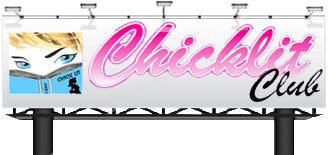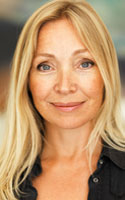


Saskia Sarginson is the author of The Other Me, which was released as a paperback this month. Her debut novel The Twins was chosen for the Richard & Judy Book Club in 2013. She lives in London and loves dancing the tango. (Interview by Jade Craddock)
It’s a mix of psychological suspense, family drama, historical fiction and two love stories. It centres around a girl who lives a double life in order to run from her past and her father; we also hear from her German uncle as he remembers his childhood with his brother in Hitler Youth and on the Eastern Front.
I didn’t discover the identity of my Dutch father until I was in my forties. To my surprise and fascination, I learned that he had been Jewish. I guessed that his family, living in Amsterdam in the Second World War, would have been caught up in the Holocaust and I immediately had a new perspective on that period of history. Later, I wondered how I would have felt if I’d discovered that he’d had Nazi connections. Would I have felt ashamed or somehow guilty? That was the place that the story grew from.
I wanted to keep the main focus on Klaudia and her father. If I’d brought in some of the other voices I think it would have detracted from the emotional heart of the story. Also, Otto and Gwyn are both lonely characters, particularly Otto, and I think omitting their voices helps to enforce the sense of isolation around them.
I knew almost nothing about Hitler Youth, and it was fascinating to research. I was most struck by the way that surviving members of the organisation looked back and understood how they had been brain-washed and manipulated.
This is such an interesting question. As you say, although we see the inner struggles of Klaudia and Ernst most clearly, all of the characters wrestle with the duality of their lives. Gywn lives with her secrets and her lost love, but she has her faith to sustain her. Out of them all, I think Otto is the most conflicted and anguished character, because underneath his apparent certainty he is still suffering from the jealousy, sense of inadequacy and resentment that haunted him as a child.
I can’t deny that writing it was a bit of a rites of passage for me. The part when Klaudia understands who her father is felt very emotional.
Thank you – I’m so glad you found it compelling. I’m not sure if there is a secret to writing that kind of fiction. I think you just have to write what feels natural and truthful to you as an author.
I’d like people to feel something about the characters’ lives. Perhaps the subject matter might even spark a recognition inside them. It would be great if it inspires people to think about the questions of identity and family that the book raises. But most of all, I hope people enjoy the story!
I have used the recent past in my other two books, dipping into characters’ childhoods in the 60s and 80s, because I like the way it can create dramatic irony and suspense, and it’s a useful device for filtering in background information on characters and events. But this is the first time I’ve gone beyond the recent past into the historical past – WWII. I’ve enjoyed the process and would like to include it in another novel one day.
I’m working on a novel called The Stranger which is a little different from my other books – there’s no historical framework, only one voice, and the book is more of a thriller. But it does have an emotional centre. The premise: When a stranger appears in an idyllic English village, everyone is suspicious, except one woman. Her trust will put her life in danger, because nothing is as it seems: not her dead husband, her would-be lover, or the stranger to whom she’s opened her heart and her home.
I definitely see it as advantageous. I’ve lived a bit and can draw on my previous experiences. Also, I’ve reached a time in my life when I’m happy to spend hours alone shut up in a room. When I was younger I loved my job on a magazine and the fact that I worked in a team and was lucky enough to travel. I might have found the life of an author rather lonely then.
I believe any kind of writing helps you to improve your writing skills. As a journalist, I became good at being disciplined and working to deadlines. All of that experience feeds into my work now. But writing a novel is a different process to anything else.
At the time it was very frustrating. But now I’m glad. Failing taught me how much I wanted it and made me tougher. With every new book you (hopefully) improve and learn. I think The Twins is a better book than the books that didn’t get published, and I’d certainly never go back to them. They are the past. Writing novels is a long game – you can’t be impatient – and I’m the most impatient person in the world! So this has been a huge learning curve for me.
A tango dancer. I love dancing. Or else I’d run a sanctuary for animals. I have two cats and three dogs, and my latest dog in a rescue from Spain. I’d love to be able to give a home to more creatures one day.